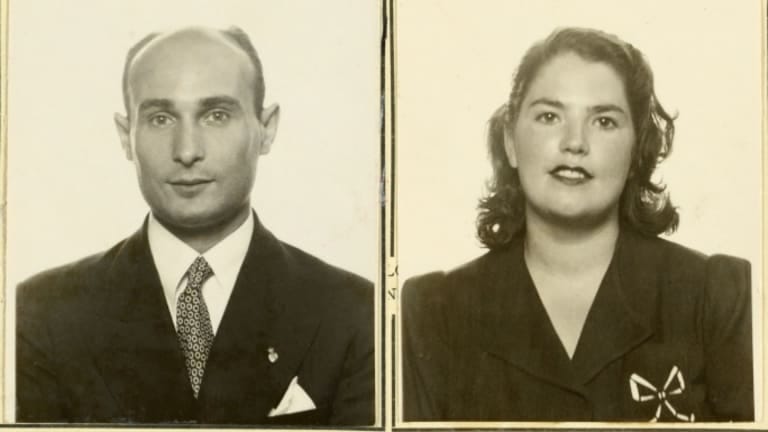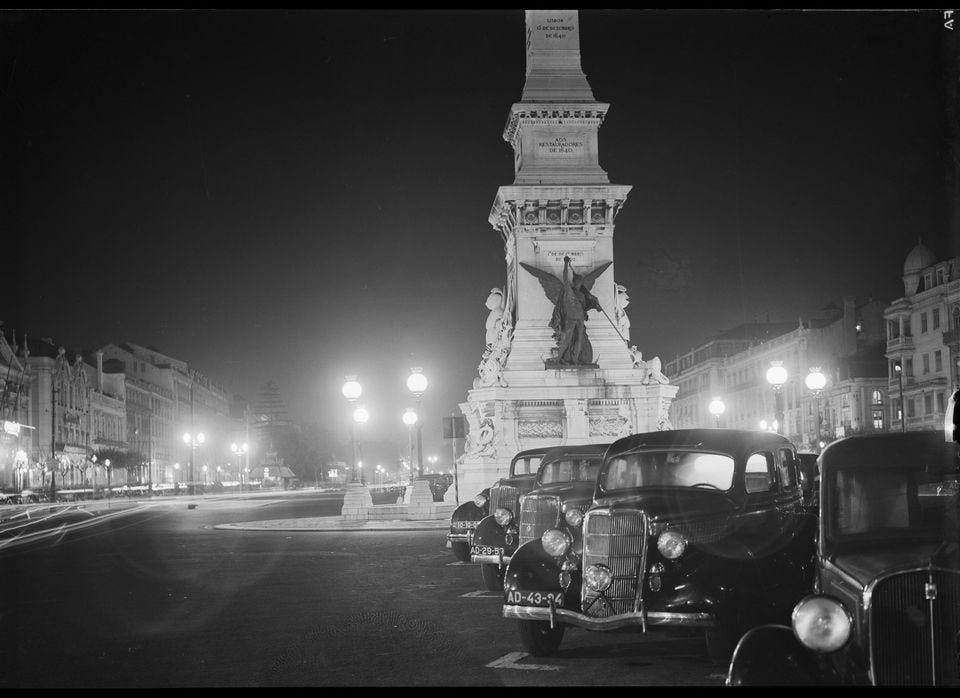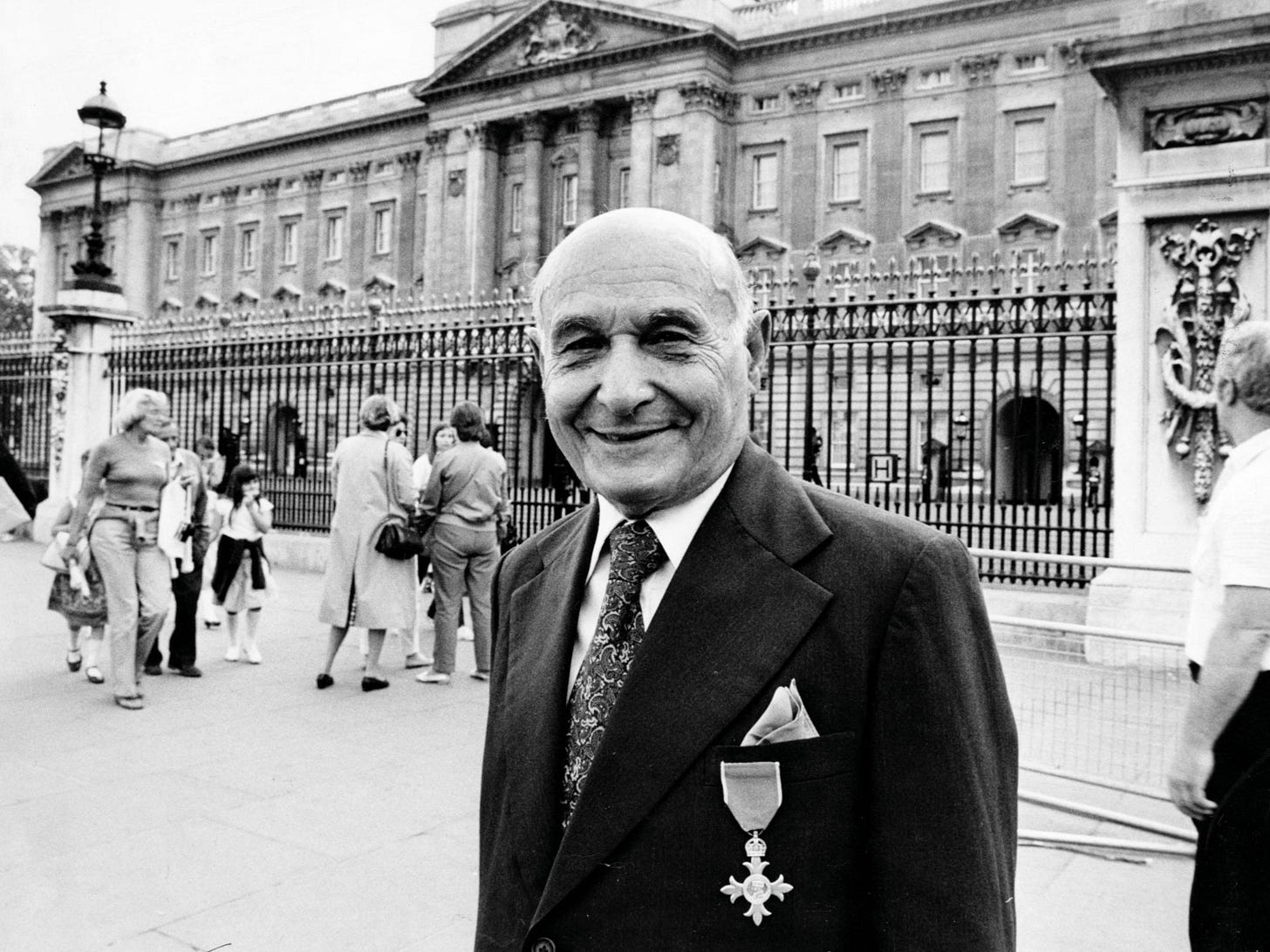Codename: GARBO
Nazi Germany paid Juan Pujol García the equivalent of £1 million and awarded him the Iron Cross for spying on Britain. A few months later, Britain awarded him an MBE, also for spying on Britain.
Spanish Civil War
Juan Pujol García had served in the 7th Regiment of Light Artillery in 1931 as part of six months compulsory military service. He had realised then that he wasn't cut out for a career in uniform. When the Spanish Civil War broke out between the Republican side and Francisco Franco's Nationalists in 1936, Juan Pujol was managing a poultry farm somewhere north of Barcelona. He had no desire to join either side.

Spanish Civil War, 1936—1939
But the war wouldn't leave him alone. Republicans took his sister's fiancé, and later arrested his sister and his mother for counter-revolutionary activities. A relative managed to get them released. Then Juan Pujol was called for military service by the Republicans. At this point he hated the Republicans and hid at his girlfriend's home. He was caught by the police & imprisoned for a week before being freed by a Traditionalist resistance group called the Socorro Blanco.
Juan Pujol returned to his previous profession after the Socorro gave him false papers, working at a Republican-requisitioned poultry farm that was ruled by committee. Soon he developed deep hatred towards Communism. After a while he joined the Republican military with the intention of deserting, then deserted to join the Nationalists. He was mistreated by them too, beaten and imprisoned when he expressed sympathy for the monarchy, and was finally discharged from the Nationalist army. He had served both sides of the war without firing a shot. This would have been enough adventure for a lifetime or two for most people, and it appeared to be so for Juan Pujol as well. He got married to Araceli Gonzalez in Madrid, settled down, and had one child.
World War II begins
World War II broke out in 1939. In Nazi Germany he saw the authoritarianism that he despised. He had to do something "for the good of humanity", and at that point the only major European power standing against the Germans was Britain. But working for Britain was easier said than done. He contacted British authorities and offered to spy on Germany for them at least thrice, in both Madrid and Lisbon. Each time he was rebuffed. The British suspected that he was a German agent.
He changed tack and approached Gustave Knittel, who worked for the Abwehr (German Military Intelligence) in Madrid and offered to spy for them. The Germans were hesitant too, but he convinced them that he was a Spanish government employee, fanatically pro-Nazi, had a visa for Britain, and could spy on the island nation for them. They gave him a quick education in espionage, £600 for expenses, and the codename Arabel. Then sent him on his way to Britain. His orders upon reaching Britain were to build a network of agents to spy for Germany.
Lisbon
Lisbon was pretty much the only way to travel to Britain from mainland Europe at that time. Juan Puyol went there, and there he decided to remain. Using reference books from the Lisbon Public Library, along with the Blue Guide to England - a travel guidebook focused on art, architecture, etc. - and assorted magazines, Juan Pujol, who had never set foot in Britain, began authoring reports.
These contained detailed descriptions of agents he gradually recruited into his network which the Germans called Arabel. These spies existed only in Juan Pujol's imagination and on reports which the Abwehr paid good money to receive. They were initially delivered to the Abwehr by Araceli, and on one occasion, after being questioned about her husband’s whereabouts, she convinced his Abwehr handler that Juan Pujol - who was actually sitting in Lisbon writing fiction - was in England. Araceli would also help her husband craft life stories for each of the agents in his network.

Juan Pujol and Araceli Gonzalez
Naturally, he did make a few factual mistakes. In one report he described two men he had met on a visit to Glasgow who "would do anything for a litre of wine". Luckily for him his German controllers were equally clueless about the drinking habits of Glaswegians. Over time, as his network as well as the number of reports he sent the Germans grew, the Abwehr came to trust Jual Puyol or Arabel implicitly, seeing him as their best spy in Britain.
Meanwhile, the British had cracked the Abwehr's Enigma encryption and had been merrily reading their cables for a while. This signals intelligence was called ULTRA. They had come across references to Arabel and knew of his network of spies. So credible were Juan Pujol’s reports that MI5 launched a full-scale counterintelligence effort to track down the Arabel network.

Restauradores Square in Lisbon, Portugal during WWII
With increased trust came increasing expectations. The Germans wanted more information, and by the beginning of 1942 they began sending him detailed questionnaires. At this point his effort was about to come undone. It was one thing to write fiction, it was quite another to provide a detailed Order of Battle of the British Army during war while sitting in Lisbon. Finding himself at the end of his tether, Juan Pujol and Araceli contacted Lieutenant Patrick Demorest of the US Navy who was working in the Naval Attache’s office in Lisbon. Demorest recognised Juan Pujol’s potential and contacted his British counterparts.
MI5
The British already had ULTRA intercepts of Arabel. So, when Juan Puyol walked up to the MI6 officer operating out of Britain's Passport Control Office in Lisbon with Demorest’s reference, and claimed that he was Arabel, the British finally hit jackpot. In April 1942, Juan Puyol, his wife, and their son were quickly whisked away to Britain. He was initially given the codename BOVRIL, assigned to an MI5 officer named Cyrill Mills, and placed under MI5's control. MI5 put him up in a safehouse in North London.

The safehouse from where he ‘spied’ for the Abwehr
But once the true extent of his independent achievements became apparent, Mills suggested that his codename be changed as befitted 'the best actor in the world'. BOVRIL became GARBO, after Greta Garbo. Mills, who did not speak Spanish, was replaced by Tomás (Tommy) Harris.

Greta Garbo’s name inspired the codename for Juan Pujol García
Later that year, one of GARBO’s agents wrote a letter to the controller of the Arabel network in the Abwehr. The letter warned them that a convoy of warships had been seen leaving port painted in distinctive Mediterranean camouflage. It was postmarked so that the receiver would believe the letter had been sent far earlier than the day it was sent by airmail. The ships it warned about were part of Operation Torch, the Allied invasion of French North Africa. The letter reached the Germans after the ships had already passed and did not serve as advance warning. But it had all the appearances of having done so, and the Germans were delighted, replying:
We are sorry they arrived too late, but your last reports were magnificent.
Araceli’s ultimatum
GARBO’s wife, meanwhile, had a tough time adjusting to life in England. She was forbidden by MI5 from contacting other Spanish-speaking people, and she could hardly speak a few words of English. The only person she could really speak with was GARBO, but he spent long hours at work. English food also irritated her to no end.
Too much macaroni, too many potatoes, not enough fish.
What made things worse for her was that she was no longer allowed to assist GARBO in running his spy network. Her behaviour became erratic, and she threatened while on the phone with GARBO one day to go to the Spanish embassy and blow GARBO’s operation if she wasn’t allowed to return to Spain and see her mother.
GARBO and MI5 concocted a story that because she had made that threat, MI5 had placed GARBO under arrest. She wasn’t fazed and pretended to be contemplating suicide. But when an MI5 officer took her to see her husband - who appeared in a prison uniform - she relented, signing an apology and promising not to do anything in the future that would jeopardise GARBO’s work.
Radio star
In 1943, GARBO invented an agent who happened to be a radio mechanic happy to transmit messages for the Arabel network. After convincing the Germans, from August 1943 all the intelligence generated by the network was transmitted over radio to the Abwehr.
Between 1942 and 1944, GARBO and Harris worked together to feed the Germans disinformation mixed with genuine intelligence provided by MI5. This genuine intelligence was of low value and called Chickenfeed. The Abwehr would corroborate it from other sources, thus increasing their confidence in Arabel and his network, but it wouldn't be valuable enough to materially impact their war effort. Or it would be valuable but wouldn't reach them in time. By 1944, GARBO and Harris had succeeded beyond MI5's wildest dreams, creating twenty-seven fictional agents in the Arabel network.
The fictional agents included such characters as a Venezuelan in Glasgow, an indiscreet US army sergeant and a Welsh nationalist leading a group of Fascists called the "Brothers of the Aryan World Order" in Swansea.

The Arabel Network
From the point when GARBO was moved to England by MI5, intelligence was passed to the Abwehr via letters written in secret ink and addressed to post-box addresses in Lisbon, as well as encoded radio transmissions. GARBO and Harris together sent more than three hundred letters averaging 2,000 words each, and more than 4,000 radio transmissions. The Germans were ecstatic and paid him today's equivalent of nearly 1 million Pounds sterling to build and maintain his network. The Abwehr was so satisfied with the yield from the Arabel network that they did not attempt to infiltrate any more agents into Britain from Spain.
Operation Fortitude
All the credibility built up by GARBO and MI5 with the Abwehr was used to devastating effect in 1944. In January that year the Abwehr told GARBO that they believed the Allies were preparing for a large-scale invasion of France and wanted the Arabel network to focus on gathering intelligence about it. The Germans were right. The Allies were indeed planning the invasion, codenamed Operation Overlord. What they didn't know was that there was an added component to Operation Overlord, called Operation Fortitude.
Between January 1944 and 6 June 1944, D-Day, GARBO and Thomas Harris transmitted more than five hundred messages to the Abwehr. These messages, ostensibly from various agents in the Arabel network, muddled the Abwehr's understanding of how the Allies were preparing for Operation Overlord. But the transmissions were also crafted to achieve another effect.
They contained snippets of information about the First US Army Group (FUSAG). This was a large force comprising eleven divisions or 150,000 soldiers. By piecing together intelligence from various parts of Arabel, the Abwehr was able to figure out that FUSAG was in Kent and Essex, ready to join the invasion. The jigsaw puzzle that GARBO and MI5 created for the Abwehr was so successful that the German High Command devoted an extraordinary amount of attention to FUSAG at the expense of other formations that were massing further west. The various snippets suggested that seventy-five divisions had been massed in England for the invasion. The intelligence also strongly pointed towards Pas-de-Calais as the place where the invasion force would land.

Operation Fortitude also involved the creation of inflatable tanks to fool aerial reconnaissance
Then, on 5 June 1944 GARBO sent a transmission asking the Germans to stand by at 3am the following morning for a critical transmission. At 3am on 6 June 1944 - D-Day - he reported that an agent of his in Southampton had reported troops being issued with embarkation kits including vomit bags, obvious signs that the invasion was imminent. This message wasn't read by the Germans until much later because of a mistake by the German radio operator, but it earned GARBO further credibility with the German High Command. GARBO cheekily chided them the next day for missing his message, transmitting:
I cannot accept excuses or negligence. Were it not for my ideals I would abandon the work.
Although the Allies had landed at Normandy, the German High Command - taken in by GARBO's intelligence about seventy-five divisions and FUSAG - refused to believe that it was the main force. This belief was reinforced on 9 June 1944 when GARBO sent a message reiterating that FUSAG under Patton had not yet deployed from South-East England. The report concluded that the Normandy landings were indeed a diversion, a feint designed to draw the bulk of German forces away from Calais. Then, once the bulk of German forces were committed to fighting the Normandy diversion, the real invasion force, namely FUSAG and other formations, would land in Calais.
The Germans so completely accepted this deception by GARBO that they kept two armoured divisions and nineteen infantry divisions at Calais through July and August 1944, allowing the Allies time to build and reinforce a bridgehead in Normandy. Even though the German Commander General Erwin Rommel proposed that the divisions be moved from Calais to Normandy to destroy the Allied forces before they could reinforce their positions, he was overruled by the Commander-in-Chief, Field Marshal Gerd von Rundstedt. Had the Germans rushed everything they had to Normandy at that time, they could very well have destroyed the invasion before it could establish itself and, in doing so, won the war on the Western Front.
Even as late as the end of July, the Germans believed GARBO implicitly. On 29 July 1944, the Germans informed him via radio transmission that he had been awarded the Iron Cross First Class "by the Führer himself". In December that same year, GARBO aka Juan Pujol García was awarded the MBE - Member of the Most Excellent Order of the British Empire by King George VI.

Juan Pujol García after the war, with his MBE
Juan Pujol & Araceli assumed new identities and moved to Venezuela after the war, but the strain imposed on their marriage in England proved too much. She returned to Spain in 1948 with their three children. A year later she was informed that Juan Pujol had died of Malaria in Brazil. She eventually remarried. Juan Pujol died in 1988, reuniting with his children once more before the end.
———
If you enjoyed reading this and would like to read more, subscribe to Espionage& for free using the button below.
You’ll also enjoy reading my spy novels: Let Bhutto Eat Grass & Let Bhutto Eat Grass: Part 2 deal with nuclear weapons espionage in 1970s India, Pakistan, and Europe.



wooooooooooooooooooooo hooooooooooooooooooooooooo